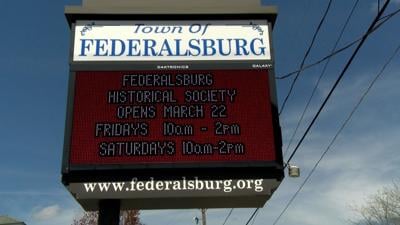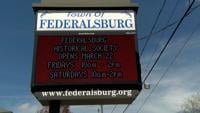FEDERALSBURG, MD - Homeowners in Federalsburg are expressing strong opposition to a proposed property tax increase. The town officials are considering raising taxes to cover maintenance costs for essential services such as water, sewer, and trash collection. However, the potential tax hike could also be intended to address a recent lawsuit settlement with the American Civil Liberties Union (ACLU) of Maryland.
In a statement to WBOC, the town of Federalsburg indicated that the proposed tax increase is necessary to manage various expenses, including a $260,000 settlement with the ACLU. The settlement was reached after it was revealed that the town had never had a Black person on its council in its 200-year history.
The town stated, “Raising taxes could help cover unforeseen expenses, like our recent settlement and attorney's fees. It can be a method to manage this debt responsibly and avoid fiscal shortfalls.”
However, many homeowners are unhappy with the proposed tax increase.
“Speaking with my neighbors, they're not very happy either that we're gonna have to pay for the increase on these taxes just so they can pay what they owe,” said Robin Asquith, a local homeowner.
The Mayor and Council of Federalsburg propose to increase real property tax rates from $. 88 per $100 of assessment to $. 94 per 100 of assessment.
Carl Snowden, with the Caucus of African American Leaders and a plaintiff in the case, supports the tax hike, seeing it as a necessary step towards justice.
“The kind of price that is being paid is an investment for the future. Generations from now, people who previously had not had the right to be represented on Federalsburg's town council will now have that right,” Snowden said.
Jeff Stevenson, owner of Harlem’s Kitchen, sees both sides of the issue.
“I was thinking, it’s not the residents' fault, and we shouldn’t be held responsible to pay those monetary damages. But then, as I get to thinking, the only way we can really get past it is if we can actually all do it together,” Stevenson said.
In response to this proposal, the ACLU of Maryland sent this statement to WBOC:
“It is truly unfortunate for the Black residents of Federalsburg that the Mayor is unwilling to admit responsibility for her and her predecessor’s mismanagement that led to a drawn-out legal battle over the blatantly discriminatory voting system the Town employed for 200 years. It is simply shameful for the Town now to try to blame the victims for its own wrongdoing. In settlement, the Town issued an apology, signed by the mayor, reading in part: ‘our deep sorrow for past wrongs inspires our unwavering commitment to build a better future for all Federalsburg residents’. The Mayor should re-read the commitments she pledged to uphold two months ago, before trying to shift responsibility to ‘outside groups’ that supported Black voters in Federalsburg in holding the Town accountable for its voting rights violations," says the ACLU of Maryland.
This is the Town of Federalsburg's statement to WBOC:
"Municipalities often find themselves in the position of needing to raise taxes for several critical reasons. Primarily, taxes are the most significant source of revenue for most local governments, accounting for over 70% of their general revenue.
This funding is essential for covering the costs of public services such as infrastructure maintenance, public health (safe water and sewer and trash), and public safety. When it comes to infrastructure, specifically paving roads and repairing aging infrastructure, the costs can be substantial, and the funds from taxes ensure these projects can be completed without compromising other vital services. Part of the Town of Federalsburg’s problem is that in July, 1965, the sitting Mayor and Council took on an additional 1.62 miles of state roads. Later correspondence from 1990 shows it was in exchange for the maintenance of the East Central Avenue bridge. Current highway user funds (HUR) that we receive from the state are used to pay a road bond that was taken out over 10 years ago to pave roads in Town.
Additionally, municipalities may incur debt to finance large projects and unfunded state mandates or to cover unforeseen expenses, like our recent settlement and attorney’s fees with the ACLU costing over $300,000. Raising taxes can be a method to manage this debt responsibly and avoid fiscal shortfalls. Furthermore, as economic realities evolve, the tax system may need to be updated to reflect current values and ensure fair and equal treatment across the community. In essence, raising taxes can be a necessary step for a municipality to maintain and improve the quality of life for its residents by ensuring that essential services and infrastructure are adequately funded and managed. The Town currently has approximately $4 million dollars in debt. This includes loans dating back as far as 1995 for water and sewer infrastructure, roads, upgrades to the wastewater treatment plant (WWTP) and new water tower, and upgrades/renovations to the Police Public Safety Building. Some of these loans will be paid off over the next few years and the Town should see a substantial drop in debt by 2028-2029.
In our case, taxes have not been raised since 2019 and water and sewer rates have not been raised since 2017. As the cost of goods and services rises to keep up with inflation, so must our taxes and water and sewer rates. While the Mayor and Council did not arrive at this decision lightly, we all felt it was necessary for the survival of our Town. We promise to review these numbers throughout the year and adjust where we can for the next fiscal year. We are working with staff to be good stewards of money while acquiring goods and services that we need for our day-to-day operations. We look forward to a more prosperous day when we can provide all the resources and quality of life activities our residents," says the Town of Federalsburg.


